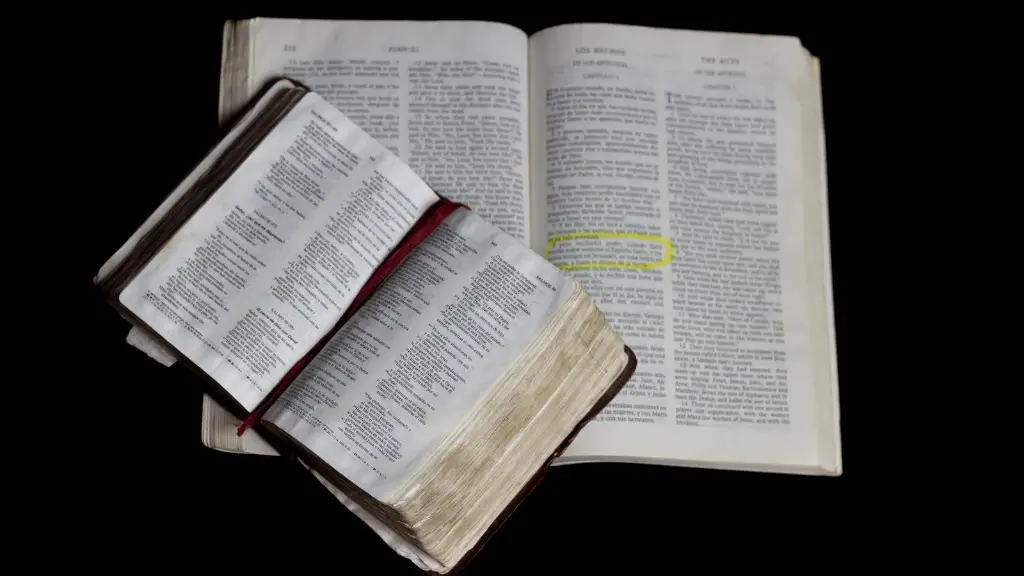Definition of Inter-racial Marriage
Inter-racial marriage or inter-marriage refers to marriage between two persons of different races or ethnic backgrounds. Such marriages are still relatively uncommon today, and account for a small percentage of all marriages. Nevertheless, such unions have long been accepted in many parts of the world, especially in areas where different ethnicities often overlap, such as the United States, South America and the Caribbean.
Historical Attitudes Towards Inter-racial Marriage
Historically, attitudes towards inter-racial marriage have been highly variable. In pre-modern societies, such marriages were often seen as a sign of social progress and development. Inter-marriage was also advocated in some ancient civilizations to strengthen ties with neighbors, create alliances or even increase the royal bloodline.
However, as Christianity spread, these attitudes began to change. At first, inter-marriage was only encouraged between members of the same faith, but eventually even this type of union was seen as taboo. This separation became codified into law in countries like the United States, where laws banning inter-racial marriage were put into effect as early as the 17th century. These laws were upheld throughout the American colonies until they were eventually overturned in 1967 by the Supreme Court.
What Does the Bible Say About Inter-racial Marriage?
There is no clear answer to the question of what the Bible says about inter-racial marriage. Different interpretations of the Bible have come to different conclusions on this issue. Some theologians have argued that biblical texts forbid inter-racial marriage, while others have argued that the Bible does not explicitly forbid it.
The main text which has been used to condemn inter-racial marriage is Deuteronomy 7:3, which reads “Thou shalt not intermarry with them; thou shalt not give thy daughter unto his son, nor take his daughter for thy son.” This text is thought to refer to the prohibition of intermarriage with the Canaanites, who were a different people group than the Israelites.
However, it is important to remember that this passage was referring to a specific situation and should not be considered a blanket ban on all inter-racial marriage. Furthermore, other passages in the Bible, such as 1 Corinthians 7:39, indicate that inter-racial marriage was accepted at one time. Ultimately, while the Bible clearly frowns upon intermarriage with people of different beliefs, it does not explicitly forbid inter-racial marriage.
The Significance of Inter-racial Marriage in Modern Times
Inter-racial marriage is a significant issue in today’s society. In some countries, such as the United States, the impact of inter-racial marriage is particularly acute. According to a recent survey conducted by the Pew Research Center, a growing number of Americans now accept inter-racial marriage, with almost two-thirds now in favor of it.
Given this newfound acceptance, inter-racial marriages are now much more common than ever before. In fact, such unions now account for about 17% of all Newlywed couples in the United States. This is a substantial increase when compared to the 2% of all marriages which were inter-racial in 1960.
Inter-racial marriage is, thus, an increasingly important factor in the American demographic landscape. By blurring racial, ethnic and cultural lines, such marriages can help to create a more unified and integrated society. They can also help to reduce racism and prejudice by allowing individuals with different backgrounds and beliefs to interact and become more familiar with each other.
The Impact of Inter-racial Marriage on Religion
Inter-racial marriages can have a significant impact on religious beliefs and practices. In the United States, the most common form of inter-racial marriage is between individuals of different denominations of Christianity. Such unions can have a profound effect on religious beliefs, as couples may be forced to reconcile the differing theological doctrines of their respective churches.
In some cases, this can be a positive experience. Inter-faith couples often find that their marriages allow them to become more knowledgeable about different religious traditions and beliefs. They may also learn how to incorporate elements of each other’s religious practices into their own lives.
However, inter-faith marriages can also lead to tension and conflict. If one partner is particularly committed to their religious beliefs, it can be difficult for them to compromise or accept the beliefs of their partner. This can lead to conflict, as couples may disagree on matters such as which church to attend, how to raise children and how to handle religious differences.
Inter-racial Marriage and Social Pressures
Inter-racial marriages often face additional pressures from society. In some cases, couples may experience discrimination and prejudice due to their ethnic or racial differences. This can be especially true if the couple lives in a more rural or conservative part of the country. In other cases, couples may experience pressure from family members or even society at large to conform to traditional gender roles or expectations.
It is important to remember that such pressures can lead to feelings of alienation and displacement, and can even have a negative impact on the marital relationship. For this reason, it is important for couples in such marriages to seek out support from friends and family, as well as from experts such as psychologists or counselors.
The Benefits of Inter-racial Marriage
Despite the potential challenges, inter-racial marriages often bring significant benefits to both parties. In many cases, couples in such marriages can develop a new appreciation for different cultures, religions and traditions. Having a spouse from a different background can also open up new perspectives and opportunities, as well as provide a sense of adventure.
Moreover, inter-racial marriages can also lead to a deeper understanding of the similarities between different ethnicities and cultures. Couples in such marriages may be better able to appreciate the value of diversity and learn more about the complex dynamics of human relationships.
Finally, inter-racial marriages can also lead to increased acceptance and understanding in society. By blurring the lines of race, such unions can help to foster greater tolerance and respect between people of different backgrounds.
Attitudes Towards Inter-racial Marriage in Different Cultures
Attitudes towards inter-racial marriages vary significantly from culture to culture. In many parts of the world, such unions were traditionally frowned upon. This was especially true in more conservative societies, where marriages were often pre-arranged on the basis of caste or class.
However, attitudes are beginning to change in many places, particularly in more cosmopolitan cities. Inter-racial marriages are becoming increasingly common and accepted in some countries. In fact, they are now almost as likely to succeed as marriages involving individuals of the same ethnicity.
Challenges Faced by Inter-racial Couples
Despite increasing acceptance, couples in inter-racial marriages still face a wide range of challenges. In some cases, couples may have difficulty finding acceptance from family or friends. In other cases, the couple may struggle to reconcile their different cultural or religious backgrounds.
On a more practical level, couples in inter-racial marriages may also find themselves navigating a different set of legal and financial challenges. For example, couples in such unions often must deal with issues such as inheritance laws, tax laws and immigration status.
Overcoming the Challenges of Inter-racial Marriage
Despite the potential challenges, it is possible to build strong, lasting relationships in inter-racial marriages. The key is to understand and respect each other’s differences, while still finding ways to bridge the gap.
Couples in inter-racial marriages should also take advantage of available support systems and resources, such as family therapy or marriage counseling. Finally, couples should make an effort to learn more about each other’s cultures, beliefs and traditions. By doing so, couples can overcome any potential differences and ultimately create a stronger, more fulfilling marriage.


